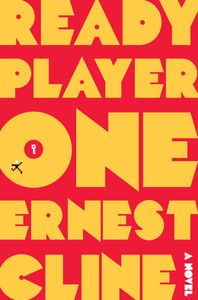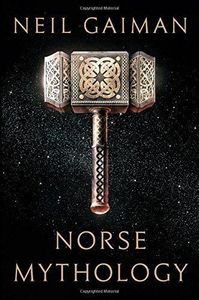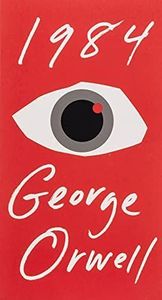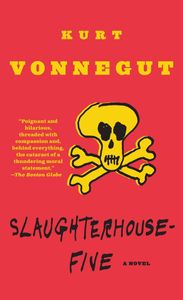
Reviews
It's informative (YAY science) but also really well written. Just one of those books that changes your way of looking at the world. Magnificent in scope, perfect in execution. VERY highly recommended.
Always fascinated by history and how we find ourselves here today. I think to better understand the present the past must be studied.
I love books like these because sometimes you get gems that explain why certain things are the way they are. For example, why petrol stations make a point to call petrol unleaded. It was such an exciting discovery for myself.
The book made me reflect on how extremely lucky we are to be alive on this planet at this time.
Also how much we take for granted. Human beings have always strived for better. We have the ability to imagine and conjure up a better future for ourselves and we must never lose that. It’s our best quality.
Shallow trivia
heightened appreciation for the scientific process and discovery
So, I read the children's version of this called "A REALLY Short History of Nearly Everything." At around 170 pages with big, cool illustrations, it was a very fun read. Some subjects were begging for more than a four-sentence paragraph's-worth of explanation (for instance, Einstein's theory of relativity), and I'm looking forward to reading the original version of the book to get a bit more extrapolation. Bill Bryson maintains a fun and fascinated tone throughout the book that makes it very easy to remember my initial fascination with science, back before chemistry confused me enough to scare me away. And he really does cover just about everything, from the weight of the planet, to the extent of the universe, to how we discovered the answers to both these questions; the development of life on earth from the very beginnings up until us; a brief history of chemistry, biology, geology, astrology...yeah, pretty much everything but quantum theory. And, while covering all of this stuff, he also tells us hilarious anecdotes about the scientists who discovered these things, which adds another fascinating layer to the history of science. All of this, and the book is filled with charming illustrations. Some of them are hilarious: during his discussion of life first making its way out of the ocean onto land, there's a small illustration of tiny little plants walking from the water onto the beach, each carrying two little suitcases. Haha! And, this book is a perfect crapper read. You can easily read two pages while on the can, and learn something super-cool (or at least be reminded of something fun you'd forgotten). For all of these reasons, it's worth reading. And other than Dave Barry, I can't think of anyone I'd rather learn science from than Bill Bryson.
An excellent book even though some parts are a bit outdated since the book was published in 2003. Still an exciting telling of the story of the universe, physics, chemistry, and the history of life in different forms. A must-read for any science geek. I wish there was an addendum to bring it up to date with the learnings from the past two decades.
Very absorbing reading about the little things that make up the fabric of our world.
An incredible overview of where we come from and how it happened. Very interesting and engaging.
Read years ago and realized I had never added to Goodreads, despite it being one of my all time faves (hence no date). This is the book that made me remember that I love science.
Charming in its erudition and curiosity and marveling.
Comprei este livro há alguns anos, talvez 2005/2006, imbuído da ideia de que seria o novo “Cosmos”, pelo menos assim era vendido na altura. O livro tinha sido não apenas muito premiado, como tinha muitos elogios na imprensa. Confesso que não passei das 50 páginas, encostei-o. Passados 10 anos resolvi dar-lhe nova hipótese, agora na versão original em audiobook. Mais uma vez, não consegui passar de 1/3, ainda saltei alguns capítulos, li mais meia-dúzia saltando, mas nada, o registo simplesmente nada me diz. Resolvi encostá-lo de vez. Como o próprio título indica este livro tenta falar sobre quase tudo, mas acaba a falar de quase nada, pelo menos foi assim que o senti. Nada se aprofunda, não há enfoque, nada é verdadeiramente dissecado. Tudo tem direito a uma história, a um cientista qualquer que fez qualquer coisa, que inventou qualquer coisa, que por acaso encontrou qualquer coisa, e é apenas disso que se trata. Ou seja, muitos tópicos, muitas histórias, e pouca realidade. Comparar este livro a “Cosmos” é demonstrar nunca se ter lido realmente “Cosmos”. Percebi depois porque não gostei, e porque me surpreendeu a abordagem tão oca. Ao contrário de Sagan, Bryson não é um cientista, é jornalista, escritor de livros de viagens! E assim se explica muito do que está errado neste livro, a tentativa de dar conta da ciência, como se de um aglomerado de histórias que conferem autenticidade a espaços e eventos se tratasse. Alguma pessoas reais, algumas piadas, e assim se vai falando sobre tudo e mais alguma coisa. Não tenho nada contra as histórias sobre os cientistas, podem até ser interessantes, mas contar a história de quase tudo, através das histórias de cientistas tão diversos e sem relação, parece-me resultar apenas num amontoado de factos sem grande relevância para esse “quase tudo”.
The Book's title is "A Short History of Nearly Everything", and by "Short", He means Short, and by "Nearly everything", He means not everything. Those who are complaining, Oh! It missed this and that, please! read the title once again. WHY WON'T YOU LIKE IT?: 1)The Book focuses on some areas more than others. 2)It sometimes gets boring, which is normal, probably you are not interested in the topic which makes it tedious. 3)The Book provide biographies of the Scientist, which are boring, but Biographies may serve many purposes, some moral, others political and others again scientific. The short bios made me realize that a lot of scientists didn't get any formal education and later on proved how amazing they were. 4)The Book omits some facts and contains many errors. THE PROBLEM WITH READERS: Don't be negative. I saw some negative reviews; by people who don't have enough experience in the field. They trashed it just because it contains some factual errors/omissions. The Book isn't 100% accurate. But, average readers shouldn't stop reading it because they read some negative reviews. I even saw some people commenting on those negative reviews " I'm on page 'this', and after your review, I'm not gonna read it". Huh, Like seriously? That's not fair. WHAT'S GOOD ABOUT THE BOOK: The book targets average readers. And at least allows them to have a glimpse at how much they don't know, which make them more curious to learn even more about the topic. Don't listen to anyone! First, read it and then review it yourself. That's fair.
2 months. It was such a slog. But definitely worth reading at least once. This book is packed with knowledge. It’s an extensive guide to: the universe, Earth, nature, and humans. This is how they should teach science in schools!
Fantastic survey of the progression of scientific thought, made particularly accessible and riveting through Bryson's pithy yet amusingly witty writing style.
A witty and delightful hommage to the universe, nature and life and those who discovered its manifold wonders and built our current body of knowledge about it - as little as it is. The author takes you on a tour de force through science but does it with ease and humour. When you skim the 80 pages of notes and bibliography, you get a glimpse of how vast distance you travelled. The book is divided into six chapters: cosmos, planet earth, new 20th century discoveries (relativity theory, quantum physics, tectonics), development of planet earth's development, development of life, and of human beings. It is a great travel guide through modern science.
Absolutely loved this. Had a handful of chapters that moved a little slow, but overall this is a wonderful book that pretty much everybody should give a read. Bonus - the audiobook is excellent
Written in a reductionist style, the book is aiming to combine answers to the biggest scientific questions. The book is easy to read, covering topics from material content of the universe, properties of particles, the origins of human being and nature of the reality. While reading, you can feel fascination the author has about everything around us and how it has evolved, as well, at the same time reminding that answers we currently hold might not be the final answers. The book is covering not only scientific achievements, but as well some of the biggest failures, paradoxes and questions (sciences like physics) try to ignore (for now). After reading this book you will still question everything around you, possibly even more than before. We still have no clue how reality or universe is structured and there is place for your answers...
For a History buff, this brief account of our past was a great way to spark interest in continuous, life-long learning about our history as human beings and planet earth. However, it did take me a while to finish it. I listened on audible and it was a great road-trip 'read'.
This was difficult to get through, not because it was a bad book (obviously - you don't rate a bad book at 4 stars!), but because it kept reminding me of all the things that I have existentially worried about over the past 30ish years. Exploding stars, black holes, meteors, global warming, epidemics, pandemics, cancer... it is a short history of nearly everything that's kept me up at night, and staring into the middle distance with a look of terror. That said, it is a really accessible introduction to some often prohibitive subjects. I enjoy Bryson's writing style - he's tongue in cheek plus genuinely interested, which is a wonderful balance that I strive for in my own life.
Dobra książka na prezent - dla osób niekoniecznie już wiedzących co nieco więcej o nauce. Autor ma bardzo lekkie pióro - pisze świetnie i z humorem. Książka zaczyna się od fizyki, potem przez geologię trafiamy do biologii, antropologii. Naukę poznajemy nie poprzez czyste zjawiska, ale raczej poprzez naukowców, którzy je odkryli. W książce opisane są również spotkania autora z obecnie żyjącymi naukowcami. Także i ja, osoba dość zapoznana z popularnonaukowymi recenzjami, dowiedziałem się paru ciekawostek.
I love Bill Bryson, but this book was just dull, dull, dull...
Me ha encantado. A veces el autor se va por las ramas y pierde un capítulo entero en alguna anécdota.
Highlights
Whatever prompted life to begin, it happened just once. That is the most extraordinary fact in biology, perhaps the most extraordinary face that we know. Everything that has ever lived, plant of animal, dates its beginnings from the same primordial twitch. At some point in an unimaginably distant past some little bag of chemicals fidgeted to life. It absorbed some nutrients, gently pulsed, had a brief existence.This much may have happened before perhaps many times. But this ancestral packet did something additional and extraordinary: it cleaved itself and produced an heir. A tiny bundle of genetic material passed from one living entity to another, and has never stopped moving since. It was the moment of creation for us all. Biologists sometimes call it the Big Earth.
If you imagine the 4.5 billion odd years of Earth's history compressed into a normal earthly day, then life begins very early, about 4 A.M., with the rise of the first simple, single-celled organisms, but then advances no further for the next sixteen hours. Not until almost 8:30 in the evening, with the day five-sixths over, has Earth anything to show the universe but a restless skin of microbes. Then, finally, the first sea plants appear, followed twenty minutes later by the first jellyfish and the enigmatic Ediacaran fauna first seen by Reginald Sprigg in Australia. At 9:04 PM. trilobitee swim onto the scene, followed more or less immediately by the shapely creatures of the Burgess Shale. Just before 10 P.M. plants begin to pop up on the land. Soon after, with less than two hours left in the day the first land creatures follow.
Thanks to ten minutes or so of balmy weather, by 10:24 the Earth is covered in the great Carboniferous forests whose residues give us all our coal, and the first winged insects are evident. Dinosaurs plod onto the scene just before 11 P.M. and hold sway for about three-quarters of an hour. At twenty-one minutes to midnight they vanish and the age of mammals begins. Humans emerge one minute and seventeen seconds before midnight. The whole of our recorded history, on this scale, would be no more than a few seconds, a single human lifetime barely an instant. Throughout this greatly speeded-up day continents slide about and bang together at a clip that seems positively reckless. Mountains rise and melt away, ocean basins come and go, ice sheets advance and withdrawal. And throughout the whole, about three times every minute, somewhere on the planet there is a flashbulb pop of light marking the impact of a Manson-sized meteor or one even larger.
It is a curious feature of our existence that we come from a planet that is very good at promoting life but even better at extinguishing it.















